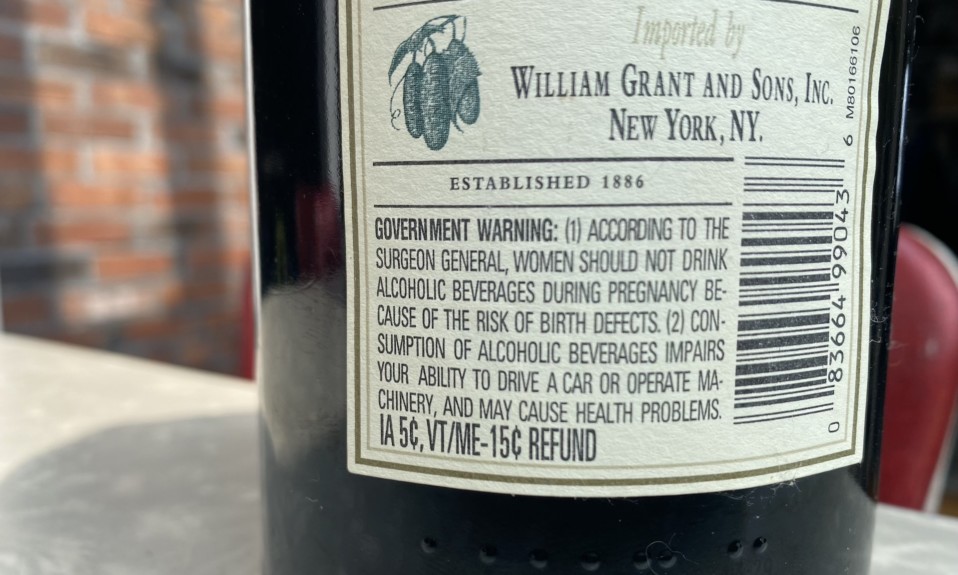Federal and class-action lawsuits seek to hold the retail giant accountable under the Controlled Substances Act. The outcome could shape pharmacy policy nationwide
By Jason Langendorf
January 26, 2021Walmart, the world’s largest retailer, is facing accusations from the highest levels that its practices have fueled the opioid epidemic—an impending legal battle that could lead to a new policy precedent for pharmacies and drug distributors across the country.
Last month, the U.S. Department of Justice (DOJ) filed a civil complaint alleging that Walmart Inc. “unlawfully dispensed controlled substances from pharmacies it operated across the country and unlawfully dispensed controlled substances to those pharmacies throughout the height of the prescription opioid crisis.”
That was followed by a putative class action securities litigation lawsuit filed last Wednesday alleging similar misconduct by the retailer. These charges include: the filling of invalid prescriptions and ignoring red flags (including those raised by Walmart’s own employees).
Walmart had the responsibility and the means to help prevent the diversion of prescription opioids. Instead, for years, it did the opposite—filling thousands of invalid prescriptions at its pharmacies and failing to report suspicious orders of opioids and other drugs placed by those pharmacies. This unlawful conduct contributed to the epidemic of opioid abuse throughout the United States.”—Jeffrey Bossert Clark, acting assistant attorney general, Civil Division, U.S. Department of Justice
The DOJ complaint alleges hundreds of thousands of violations of the Controlled Substances Act (CSA) on the part of Walmart pharmacies—which number more than 5,000 across the United States—that could lead to billions of dollars in civil penalties, as well as injunctive relief that could threaten the retailer’s pharmacy business.
Prescription Opioids and Overdoses in the U.S.
“As one of the largest pharmacy chains and wholesale drug distributors in the country, Walmart had the responsibility and the means to help prevent the diversion of prescription opioids,” Jeffrey Bossert Clark, Acting Assistant Attorney General of the Civil Division, said in a statement released after the DOJ complaint was filed. “Instead, for years, it did the opposite—filling thousands of invalid prescriptions at its pharmacies and failing to report suspicious orders of opioids and other drugs placed by those pharmacies. This unlawful conduct contributed to the epidemic of opioid abuse throughout the United States.”
Nearly 450,000 people died of an overdose involving opioids between 1999 to 2018, according to figures from the Centers for Disease Control and Prevention (CDC). And the steadily rising annual overdose numbers spiked significantly in the year ending in May 2020: 81,000, the most ever recorded in a 12-month period.
In October, the Justice Department announced that Purdue Pharma agreed to plead guilty to felony charges and pay billions in penalties for its role in its marketing of the opioid OxyContin. If the tone of Walmart’s public response about the accusations of its own failings under the CSA is any indication, the retailer isn’t likely to be so contrite.
Walmart Fights Charges
In a post published to its corporate blog on the same day the DOJ filed suit, Walmart described the complaint as “misleading” and “riddled with factual inaccuracies,” and called it “outrageous [that] the Department is trying to shift blame for DEA’s own well-documented failures in policing the very doctors it gave permission to prescribe opioids.”
Of last week’s class-action suit, the retailer issued a statement announcing, “We take these matters seriously. We disagree with the allegations in the complaint, and we will defend this matter vigorously.”
In October, Walmart preemptively sued the Department of Justice and Drug Enforcement Administration, defending its record in identifying potential bad actors among prescribers and asking a federal court to clearly outline its oversight role. A statement from the retailer at the time accused the DOJ of being “more focused on chasing headlines than fixing the crisis.”
A Federal Investigation Since 2016
Will Walmart eventually face prosecution? It may come down to the new presidential administration’s appetite for a legal battle with a company that boasts deep financial resources and a formidable lobbying influence, as well as its willingness to hold past federal appointees to account. In April 2020, Senator Diane Feinstein (D-Calif.) sent a letter to question former Attorney General William Barr asking why federal prosecutors who previously sought to indict Walmart had been overruled by Justice Department officials under the Donald Trump administration.
There are going to be fortunes spent on lawyers, and it’s going to take forever. And there’s a decent chance that this kind of case will settle. They usually do.”—Brad Schimel, Wisconsin circuit court judge and former attorney general of Wisconsin
That federal investigation, which began in 2016, found that Walmart not only ignored warnings from its pharmacists across the country about “pill mill” prescribers, but also felt pressure from supervisors to continue filling dubious opioids scripts from prescribers who were being refused, or “blocked,” by other pharmacies. The investigation also discovered a secret 2011 settlement with Walmart, in which the Drug Enforcement Administration (DEA) agreed to overlook scores of CSA violations with the understanding that the retailer would install specific oversight and compliance protocols to shore up its opioid-prescription policies in the future.
What to Expect in the Legal Battle Ahead
“I would expect that the litigation is going to be protracted,” says Brad Schimel, a Wisconsin circuit court judge and former attorney general of Wisconsin, who has served on the Waukesha County Board’s Addiction Resource Council.
“The discovery process will be unbelievable—the number of people that will be deposed, the number of documents that are going to be sought back and forth, from both sides. There are going to be fortunes spent on lawyers, and it’s going to take forever. And there’s a decent chance that this kind of case will settle. They usually do.”
Photo: iStock














